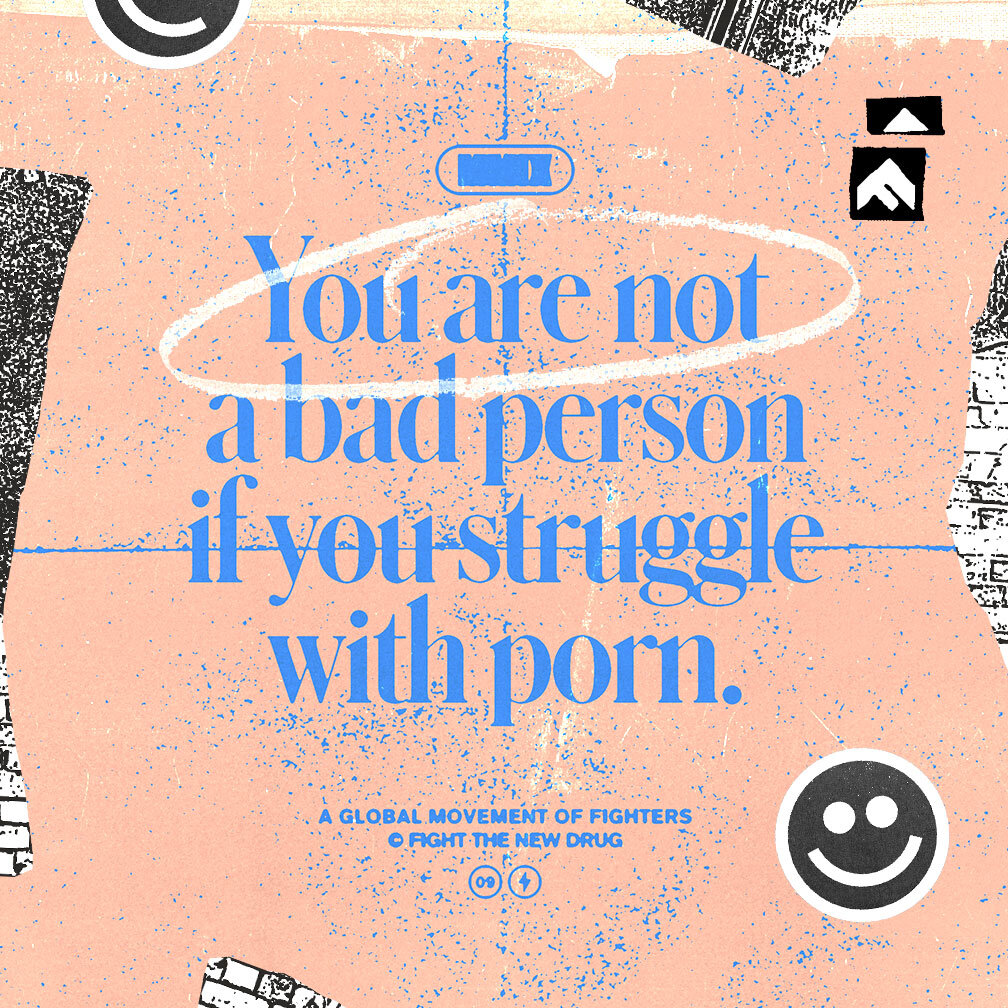Have you ever considered how the opposite of addiction may not be just sobriety—but connection?
In a recent TED Talk, Johann Hari—a journalist who has spent years researching addiction after seeing his own loved ones struggle—shared his findings. His surprising discovery? What most people believe about addiction may not actually be accurate.
According to Hari, what fuels addiction, helps it to tighten its grip on so many, and even helps people overcome it is human connection—or the lack thereof.
His unique perspective is causing many to rethink the way they cope with addiction, and challenges society to reevaluate the way we treat those who struggle.
Not everyone who struggles is addicted
Every day, we hear from Fighters across the world whose stories align with Hari’s theory. Remember that not every consumer who watches porn has an addiction, or will even develop an addiction. Even so, these real experiences are important:
“I didn’t tell anyone…thinking I could overcome it myself. It took me a few months to get up the courage, but I went to see a trusted friend. Talking to someone about it left me lighter and freer. He told me I wasn’t alone, that I hadn’t messed up more than I could fix, and that I was capable of overcoming my addiction. I still fight every day, but I’m doing better and have so much hope for the future.”
“I knew that something was up with my roommate, but I wasn’t sure how to bring it up. One day I opened up to him about some of the harder things in my life and he opened up about his pornography problem. I felt so much love for him and we both cried. He asked me to help keep him be accountable. He knew that there would be no judgment on my part, just love.”
“When things started to get serious between me and a boy I was dating, he opened up and told me that his weakness was pornography. I told him I had a similar problem in the past. For the first time, I didn’t feel shame for my history with it. Instead, we were able to discuss how we could set goals and boundaries to work together to get over this problem.”
Notice a common theme in these real experiences? While each story is unique, they all emphasize how the support of someone who truly cares played a crucial role in their recovery.
Related: Is The Word “Addiction” Being Overused?
Shaming is a barrier to real relationships
Addiction and compulsion thrive in isolation. Add in some shame and self-loathing, and you’ve got a spiral of a porn obsession that can feel completely out of control.
Consider some of the thoughts that can trigger someone to turn to porn again and again:
“Porn is the only thing that will make me feel good.”
“The people in porn seem to want me and no one else does.”
“I’m alone and will never find anyone, so why not log on?”
“This is the last time, then I’m done. I’m already online, so why not?”
“If this person I love found out, they would see what a terrible person I am… I need to deal with this alone and never tell them.”
Everyone has their low points from time to time, but these persistently isolating thoughts are the opposite of what well-connected and healthy person would be thinking on an average day.
Loneliness and virtual “relationships” can replace natural bonding
On a biological level, every human needs to bond with people in order to be healthy and happy. But if someone is unable to bond with others because of trauma, isolation, or shame, they can turn to something else for temporary relief, whether it be food, video games, or porn. Anything to give you that “rush” of a dopamine reward, even if it’s temporary.
Related: Study Reveals How Porn Fuels Cycles Of Loneliness In Consumers
But let’s face it—the “virtual” world of porn doesn’t provide the lasting connectedness that real relationships do, and it’s a fact that porn can actually leave consumers lonelier than before. When a consumer gets distracted from their real relationships and instead invest time and energy into a crippling porn habit, the results can be devastating.
But punishing or shaming porn consumers only puts up barriers that push them from what they need most: real connections with real people. These barriers to connection are also barriers to healing. What those who struggle need is something to fight for—lives filled with purpose, healthy relationships, meaningful work, and people to love.
It all comes back to real, intimate bonds. Compared to the real bond of healthy relationships, romantic and otherwise, porn will pale in comparison.
Porn won’t be there when real life happens
We’ve all had times in our lives where we need help from someone—like changing a flat tire, moving into a new apartment, or studying for that big test. Or maybe you’re dealing with something deeper, like the end of a relationship, the loss of a loved one, or a devastating diagnosis.
When crisis strikes in life—and it will for each of us at some point—who will support you and help you through it?
It won’t be porn performers on a screen, obviously. It will be flesh and blood connectivity that we have in our lives, the friends and family who love you through it and remind you who you are.
Instead of investing in a fake version that can never love you the way you deserve to be loved, consider bonding with someone who can. We can give each other something that a screen never can, and connections that keep us healthy and focused on the best things in life.
Real love can heal
The opposite of addiction isn’t necessarily the absence of porn consumption—it’s a connection to what’s real. When our lives and relationships have meaning that’s deep and fulfilling, the addictive nature of porn loses power.
Love is at the core of how we treat ourselves and how we respond—individually and societally—to those who struggle. This is how true healing comes. This is what can change the world.






